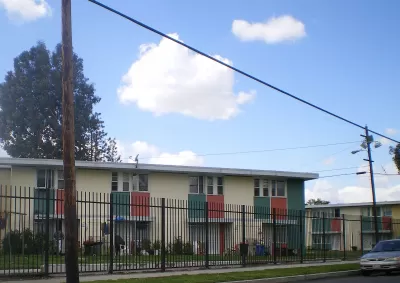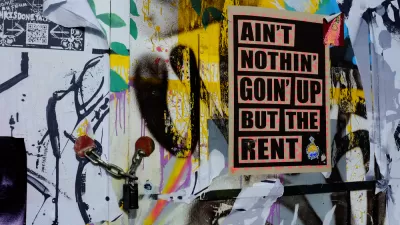Large institutional investors are changing the realities of the U.S. rental housing market, but a lack of information makes it hard for cities to respond.

“Understanding who owns rental units is a first step toward ensuring a supply of affordable, quality rental stock—and to supporting landlords—but very little data on rental property ownership exist,” according to an article by Fay Walker and Eleanor Noble for the Urban Institute.
Walker and Noble help fill the gap, however, using publicly available data to examine rental property ownership and analyze ownership patterns in Minneapolis, Pittsburgh, and Philadelphia to produce several key findings: small landlords own a shrinking share of the rental units in these cities, large institutional ownership makes it harder to discern who owns rental units, and more research is necessary to generate solutions that will benefit renters and landlords.
The last point is really the key call to action of this article: “As the landscape of landlords changes in cities nationwide, it will be increasingly important for municipalities to understand what tools they have to support small landlords and, by extension, their tenants.”
A lot more data on the housing markets of these three cities and the larger United States are included in the source article below.
FULL STORY: Ensuring Safe and Affordable Housing Stock Starts with Understanding Who Owns Rental Units

Maui's Vacation Rental Debate Turns Ugly
Verbal attacks, misinformation campaigns and fistfights plague a high-stakes debate to convert thousands of vacation rentals into long-term housing.

Planetizen Federal Action Tracker
A weekly monitor of how Trump’s orders and actions are impacting planners and planning in America.

In Urban Planning, AI Prompting Could be the New Design Thinking
Creativity has long been key to great urban design. What if we see AI as our new creative partner?

Florida Seniors Face Rising Homelessness Risk
High housing costs are pushing more seniors, many of them on a fixed income, into homelessness.

Massachusetts Budget Helps Close MBTA Budget Gap
The budget signed by Gov. Maura Healey includes $470 million in MBTA funding for the next fiscal year.

Milwaukee Launches Vision Zero Plan
Seven years after the city signed its Complete Streets Policy, the city is doubling down on its efforts to eliminate traffic deaths.
Urban Design for Planners 1: Software Tools
This six-course series explores essential urban design concepts using open source software and equips planners with the tools they need to participate fully in the urban design process.
Planning for Universal Design
Learn the tools for implementing Universal Design in planning regulations.
Gallatin County Department of Planning & Community Development
Heyer Gruel & Associates PA
JM Goldson LLC
City of Camden Redevelopment Agency
City of Astoria
Transportation Research & Education Center (TREC) at Portland State University
Jefferson Parish Government
Camden Redevelopment Agency
City of Claremont





























